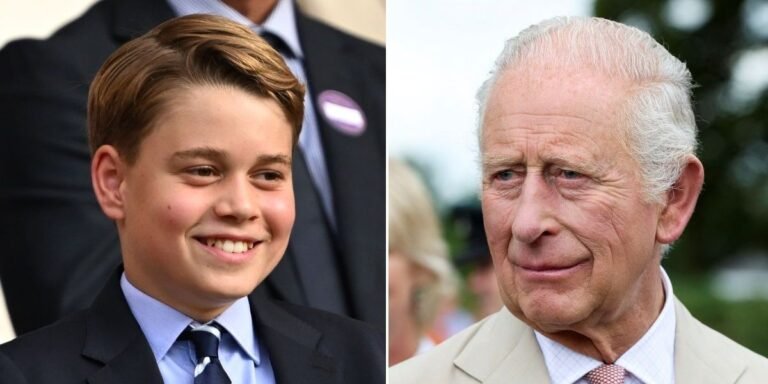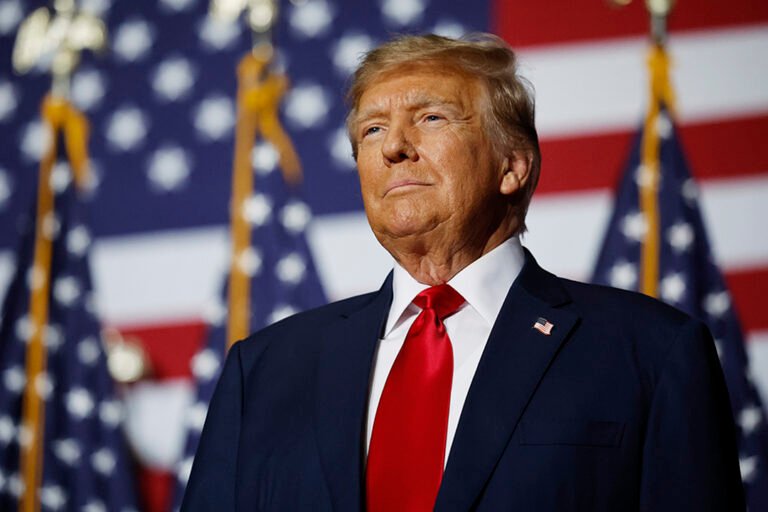First he came for late-night TV, then a daytime talk show and a crude cartoon.
U.S. President Donald Trump and his administration are fighting battles on all fronts when it comes to mockery and criticism of the 47th commander-in-chief.
As speculation swirls that CBS might have turfed The Late Show with Stephen Colbert because of his recent criticism of parent company Paramount Global agreeing to a $16-million US settlement with the president over a 60 Minutes interview, the White House has also come out swinging this week against the animated series South Park and ABC’s The View.
South Park‘s 27th season premiere episode, which aired on Wednesday, lampooned the president and the CBS-Colbert drama and depicted a naked Trump climbing into bed with Satan. That same day, a co-host of The View accused Trump of being “jealous” of former president Barack Obama’s looks and marriage.
Even though he’s known for mocking a range of people he doesn’t like, Trump’s image, persona and brand are what made him a household name, and he doesn’t take it well when he senses attacks on any of them.
While he would largely take out his anger in a Twitter tirade during his first administration (what X was known as back then), there are concerns that Trump is using his power in his second term to influence corporate decision-making and settle grievances — especially when it comes to the news and entertainment industry.
But freedom of expression groups say the political satire and parody that are now under fire are art forms that are not only constitutionally protected but vital to public discourse.
“We have mocked presidents and leaders in this country since before this was a country,” Will Creeley, legal director of the Philadelphia-based advocacy group Foundation for Individual Rights in Expression (FIRE), told CBC News.
“If you can’t make fun of who’s running the country, then the First Amendment doesn’t mean a damn thing.”
Questions are swirling over whether the cancellation of Stephen Colbert’s Late Show was politically motivated or purely financial. Colbert alluded to a ‘bribe’ tied to a Trump lawsuit and a corporate deal.
A ‘chill’ setting in
Earlier this week, Trump seemed to take credit for the cancellation of The Late Show and putting Colbert, a vocal critic of the president, out of work.
Although CBS, when it made the announcement last week, said the decision to end the show in 2026 was “purely financial,” Colbert and others have suggested it may have something to do with the settlement and Paramount’s merger with Skydance Media that the Trump administration approved this week.
As a storm of backlash brewed, including from Colbert’s late-night compatriots, Jon Stewart and Jimmy Kimmel, Trump appeared emboldened and even claimed in a post on his Truth Social platform that ABC’s Jimmy Kimmel Live! could suffer a similar fate.

Creeley said no matter the reason for The Late Show‘s cancellation, both the timing of it and Trump’s “glee” contribute to what he sees as a “deeply depressing chill” setting in when it comes to satirizing and criticizing the president and his administration.
“This is ugly, strongman authoritarian territory we’re entering, and it should chill all Americans, regardless of your partisan commitments,” he said, comparing Trump to Hungarian Prime Minister Viktor Orban, who has been accused by such groups as Human Rights Watch of limiting press freedom and freedom of expression.
Creeley pointed to another White House clapback this week as further indication of how the political climate has changed.
Spokesperson Taylor Rogers lambasted Wednesday’s episode of South Park, which coincidentally airs on Paramount-owned Comedy Central, saying the show “hasn’t been relevant for over 20 years” and that no “fourth-rate show can derail President Trump’s hot streak.”
Creators Trey Parker and Matt Stone brushed off the rebuke while speaking at Comic-Con in San Diego on Thursday, but Creeley said the mere fact that this episode has gotten so much attention speaks to the current state of affairs.
“It used to be that South Park making fun of people wasn’t front-page news, but it shows you how far we’ve slipped, that all of a sudden it feels like this extremely important, extremely righteous act,” he said.
WATCH | Trump in bed with the devil in South Park premiere (contains profanity, cartoon nudity):
The View in Trump’s sights
But it’s not just comedy shows that are in the Trump administration’s sights — it’s criticism in any form.
Joy Behar, a longtime co-host of ABC’s top-rated daytime talk show The View, appeared to hit enough of a nerve that both the White House press office and the head of the Federal Communications Commission (FCC) reacted.
Responding to Trump calling for an investigation into former president Barack Obama over unsubstantiated allegations that he tried to “lead a coup,” Behar, a former standup comedian, called out Trump for his alleged role in the Jan. 6, 2020, riots at the U.S. Capitol and said that the sitting president was jealous of his predecessor.
WATCH | The View’s Joy Behar criticizes Trump, says he’s jealous of Obama:
“The thing about him is he’s so jealous of Obama, because Obama is everything that he is not: trim, smart, handsome, happily married … and Trump cannot stand it. It’s driving him crazy,” she said.
White House spokesperson Rogers called her “an irrelevant loser suffering from a severe case of Trump Derangement Syndrome” and warned in a statement to media outlets that The View could be “next to be off the air.”
FCC chair Brendan Carr, in a later interview with Fox News, also said The View may face “consequences” but didn’t elaborate.
Tough to snuff out satire
Attempting to silence political satire, parody and criticism isn’t a winning strategy, said Sophia McClennen, a professor of international affairs at Pennsylvania State University and author of the book Trump Was a Joke: How Satire Made Sense of a President Who Didn’t.
Speaking with CBC Vancouver’s On The Coast on Thursday, she said satire helps people develop their resilience to consume news and information that is interspersed with “lies, misinformation and B.S.”
“Having that sort of more playful source of information is really the heart of what makes satire such a really powerful remedy,” she told guest host Amy Bell.
But McClennen said that’s also why “satirists are some of the most attacked entertainers in the world.”
Still, she said, it’s important to remember that satire “doesn’t die” when people in power try to muzzle them. Instead, it continues to evolve and show up in other forms.
On The CoastThe cancellation of the Late Show with Stephen Colbert, and how political satire helps make sense of news coverage
Sophia McClennen, a Pennsylvania State University professor of international affairs and comparative literature, and expert on political satire, speaks with guest host Amy Bell on the importance of satire for covering political news and how it makes audiences smarter news consumers.
Another example of limiting free expression
Trump butted heads with network television stars and comedians during his first administration, but Creeley, of the group FIRE, said the president now appears to have more of a “willingness to use extra legal means or abuse the power of the federal government to intimidate critics.”
He said what has happened in recent days is part and parcel of Trump cracking down on freedom of expression in other venues, which includes cutting funding for public media, threatening companies over diversity, equity and inclusion policies and putting legal and financial pressure on Ivy League universities.
Creeley said the “hypocrisy” of Trump and his Republican Party is “staggering,” having once sold themselves as champions of free speech, in the face of Democrats and left-wing groups and institutions, but are now the ones trying to put limits on political discourse.
He said he’s concerned that people might become “numb” to Trump’s actions and behaviour and not push back: “After weeks like this one, I worry about what’s to come.”




